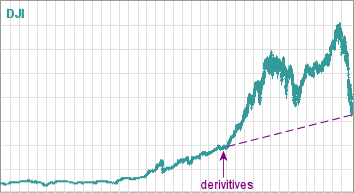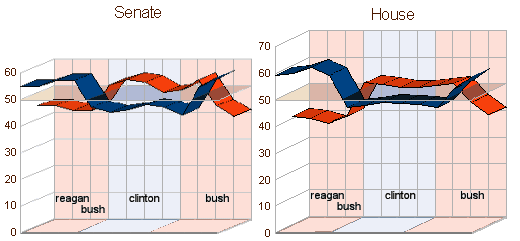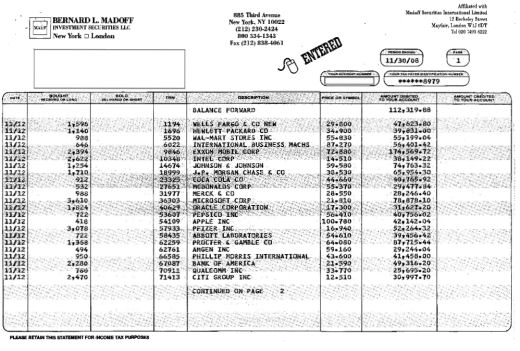
Why is this man smiling?
 Former Vice President Dick Cheney on Sunday again asserted that President Obama has made the country less safe, arguing that the new administration’s changes to detention and interrogation programs for suspected terrorists would hamper intelligence gathering. Mr. Cheney said these moves suggested that terrorism is now being treated as a law enforcement problem.
Former Vice President Dick Cheney on Sunday again asserted that President Obama has made the country less safe, arguing that the new administration’s changes to detention and interrogation programs for suspected terrorists would hamper intelligence gathering. Mr. Cheney said these moves suggested that terrorism is now being treated as a law enforcement problem.
“He is making some choices that, in my mind, will, in fact, raise the risk to the American people of another attack,” Mr. Cheney, who was interviewed on CNN’s "State of the Union,” said about Mr. Obama.
Since taking office, President Obama has reversed many of the policies championed by Mr. Cheney during his eight years serving with George W. Bush. Mr. Obama has announced that the Guantánamo Bay detention camp in Cuba will close within the year, suspended military trials for suspected terrorists and prohibited the interrogation practice known as waterboarding. But on Sunday Mr. Cheney contended those very methods had produced intelligence — still classified — that helped uncover specific plots.
“I think those programs were absolutely essential to the success we enjoyed of being able to collect the intelligence that let us defeat all further attempts to launch attacks against the United States since 9/11,” Mr. Cheney said of Bush administration policies, echoing statements he had made in an interview last month with Web site Politico. “I think that’s a great success story. It was done legally. It was done in accordance with our constitutional practices and principles”…
Former vice president Richard B. Cheney said yesterday that he strongly disagreed with President Bush’s decision not to pardon I. Lewis "Scooter" Libby, saying his former chief of staff had been left "hanging in the wind." "I think he’s an innocent man who deserves a pardon," Cheney said on CNN’s "State of the Union," in what the cable news program billed as his first television interview since leaving office in January…
…Bush commuted the prison sentence, leaving Libby, a prominent Washington lawyer for years, to face the fine and two years’ probation. In a statement at the time, Bush characterized Libby’s punishment as "harsh," calling his professional reputation "forever damaged." Cheney and other conservatives urged Bush to issue Libby a pardon, which amounts to a full exoneration. But Libby was not included in the more than two dozen that Bush handed out in December in a final round of pardons, an often controversial end-of-term tradition.
"It was one of the moments that occurred in the administration where we had fundamental difference of opinion," Cheney said in the CNN interview. "I believe firmly that Scooter was unjustly accused and prosecuted and deserved a pardon, and the president disagreed with that."
Cheney said he still speaks to Bush after having "traveled a long way together in eight years and two presidential campaigns. That built a very solid, lasting relationship." But he added: "I was clearly not happy that we, in effect, left Scooter sort of hanging in the wind, which I didn’t think was appropriate."
Cheney-Think:
-
"I think that’s a great success story. It was done legally. It was done in accordance with our constitutional practices and principles." Nothing about the Iraq misadventure was a success. Certainly the legality of any of this is in question, even from the Bush DoJ. And nobody, but nobody, believes it was done in accordance with our Constitution and Principles [unless you don’t include Moslems as human beings].
-
"I think he’s an innocent man who deserves a pardon." That’s not what a duly constituted jury thought.
-
"I believe firmly that Scooter was unjustly accused and prosecuted and deserved a pardon." He was accused and prosecuted by a Federal Prosecutor appointed by the Bush Administration in a court of law.
-
"I was clearly not happy that we, in effect, left Scooter sort of hanging in the wind, which I didn’t think was appropriate." Cheney’s unhappiness is visible from 100 yards. But here we get to the essence of things. He was Cheney’s Chief of Staff doing Cheney’s bidding, and so he doesn’t want him punished. Cheney is as much as saying that Scooter should be pardoned because he was just doing what Cheney told him to do, and was covering up for Cheney.
I wish that I were the kind of person that could say to myself, "he’s just a sick old man and doesn’t know any better, one of those people whose ambition outran his capabilities" – like that old book, the
Peter Principle:
The Peter Principle is the principle that "In a Hierarchy Every Employee Tends to Rise to His Level of Incompetence." While formulated by Dr. Laurence J. Peter and Raymond Hull in their 1968 book The Peter Principle, a humorous treatise which also introduced the "salutary science of Hierarchiology", "inadvertently founded" by Peter, the principle has real validity. It holds that in a hierarchy, members are promoted so long as they work competently. Sooner or later they are promoted to a position at which they are no longer competent [their "level of incompetence"], and there they remain. Peter’s Corollary states that "in time, every post tends to be occupied by an employee who is incompetent to carry out his duties" and adds that "work is accomplished by those employees who have not yet reached their level of incompetence".
Never has a greater truth been told, particularly in the case of Dick Cheney. I don’t think of George W. Bush as competent, even at lower levels. But then, neither does anyone else. But Cheney, thinks that he’s right, period. Yet his Vice Presidency is a string of wrongness. If you carefully parse what Cheney [and, for that matter, Bush] says, it’s always the same. ‘In my mind, what I did seemed like a good idea at the time therefore it was right.’ The usual test of rightness [or relative rightness, a standard for the rest of us], is measured by the outcome.
"But on Sunday Mr. Cheney contended those very methods had produced intelligence — still classified — that helped uncover specific plots." Here, Cheney is trying to look at outcome, at least in an "ends justify the means" way – not what I meant by outcome. But even in his way of looking at things, what he says is highly suspect. If "those very methods had produced intelligence," they wouldn’t still be "still classified." Bush and Cheney were consistent with classification. They classified what they didn’t want us to know. And they declassified what they did want us to know. So, if it’s still classified, it didn’t produce intelligence.
Pardoning Scooter is the same deal. In the last example, Cheney claims "It was done legally. It was done in accordance with our constitutional practices and principles." Yet with Scooter who was protected by our Constitution maximally, Cheney’s not so hot on the legal system. How come, you ask? Because it didn’t reach the conclusion Cheney wanted it to reach. Cheney-think starts with the desired conclusion, and fits the logic in later. We all try to do that, but most of us don’t think we can get away with it…
"he’s just a sick old man and doesn’t know any better, one of those people whose ambition outran his capabilities"
"he’s just a sick old man and doesn’t know any better, one of those people whose ambition outran his capabilities"
"he’s just a sick old man and doesn’t know any better, one of those people whose ambition outran his capabilities"
"he’s just a sick old man and doesn’t know any better, one of those people whose ambition outran his capabilities"
"he’s just a sick old man and doesn’t know any better, one of those people whose ambition outran his capabilities"







 Former Vice President Dick Cheney on Sunday again asserted that President Obama has made the country less safe, arguing that the new administration’s changes to detention and interrogation programs for suspected terrorists would hamper intelligence gathering. Mr. Cheney said these moves suggested that terrorism is now being treated as a law enforcement problem.
Former Vice President Dick Cheney on Sunday again asserted that President Obama has made the country less safe, arguing that the new administration’s changes to detention and interrogation programs for suspected terrorists would hamper intelligence gathering. Mr. Cheney said these moves suggested that terrorism is now being treated as a law enforcement problem.  Ever since December, we’ve been waiting for other shoes to drop in the Bernie Madoff fraud case. Now, the wait may be coming to an end.
Ever since December, we’ve been waiting for other shoes to drop in the Bernie Madoff fraud case. Now, the wait may be coming to an end. 

 Federal prosecutors in New York and the US Securities and Exchange Commission are preparing to file a legal action against Ruth Madoff, wife of jailed fraudster Bernie, amid fears that she will try to flee the United States or move her $70m fortune beyond their reach. Department of Justice sources told the Observer that prosecutors were "working around the clock" to build a criminal complaint against Mrs. Madoff in an effort to ask a judge to freeze her bank accounts, which they believe are filled with the proceeds of her husband’s crimes.
Federal prosecutors in New York and the US Securities and Exchange Commission are preparing to file a legal action against Ruth Madoff, wife of jailed fraudster Bernie, amid fears that she will try to flee the United States or move her $70m fortune beyond their reach. Department of Justice sources told the Observer that prosecutors were "working around the clock" to build a criminal complaint against Mrs. Madoff in an effort to ask a judge to freeze her bank accounts, which they believe are filled with the proceeds of her husband’s crimes. The SEC, America’s top financial regulator, is understood to be liaising with the US Attorney’s Office for the Southern District of New York to help prepare the asset freezing order. "What will happen," one SEC source said, "is that the US attorneys will be in court in the next week or so to tell a judge that they believe Mrs Madoff’s assets are derived from ill-gotten gains and that they should be frozen for a certain period of time while the investigation is ongoing." The judge will then decide whether there is sufficient reason to believe Mrs Madoff’s assets were the proceeds of her husband’s $64bn Ponzi scheme…
The SEC, America’s top financial regulator, is understood to be liaising with the US Attorney’s Office for the Southern District of New York to help prepare the asset freezing order. "What will happen," one SEC source said, "is that the US attorneys will be in court in the next week or so to tell a judge that they believe Mrs Madoff’s assets are derived from ill-gotten gains and that they should be frozen for a certain period of time while the investigation is ongoing." The judge will then decide whether there is sufficient reason to believe Mrs Madoff’s assets were the proceeds of her husband’s $64bn Ponzi scheme…